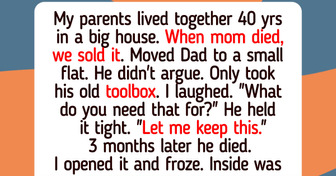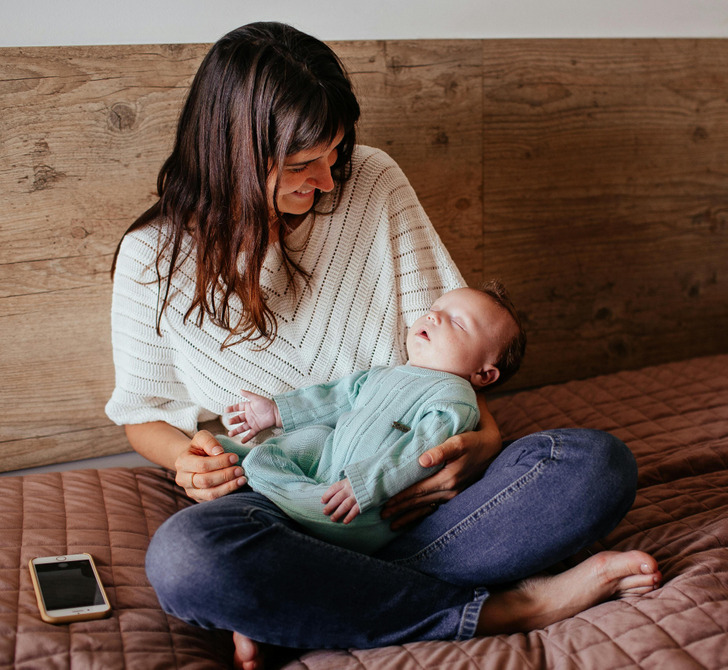I really think all these articles are AI generated.
My Dad Called My Baby a Mistake—My Mom Made It Harder to Move On
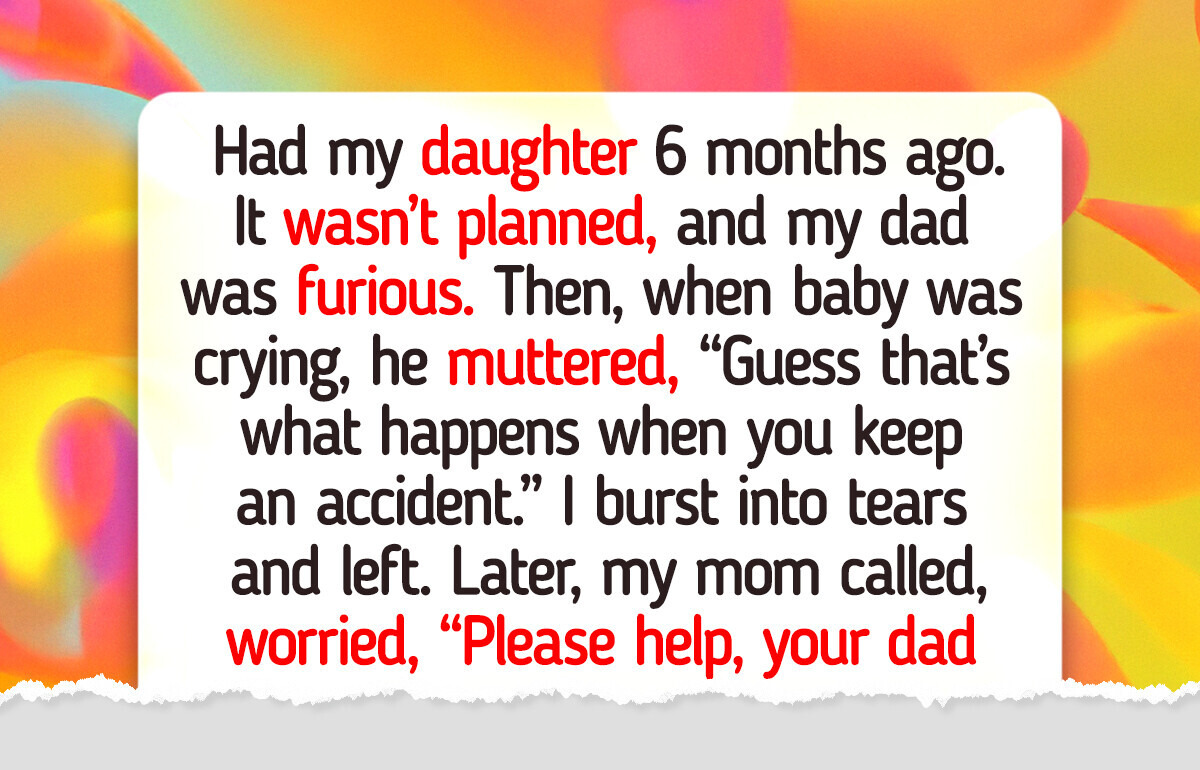
Having an unplanned child can turn your entire world upside down. It brings unexpected joy, but also complex emotions, strained relationships, and difficult decisions. Family reactions can range from quiet disappointment to outright anger, adding another layer of pain during an already vulnerable time. This is a deeply personal journey—one filled with both heartbreak and unexpected strength.
Unexpected arrival.
Hello Bright Side!
I had my daughter six months ago. It wasn’t planned, but once I found out, I decided to keep her. My family didn’t take it well—especially my dad. He was furious. He didn’t yell when I told him, but the silence that followed felt louder than any argument.
Family fractures.
At dinner one evening, my baby started crying. Just normal baby stuff—restless, fussy. But then my dad muttered under his breath, loud enough for everyone to hear, “Guess that’s what happens when you keep an accident.”
I pushed my chair back and left the table, tears streaming down before I even made it to the hallway.
Unspoken apologies.
Later, my mom called, worried, “Please help, your dad is trying to apologize but doesn’t know how to say it.” I sat there, phone pressed to my ear, numb.
I was still carrying the sting of his words like a bruise no one else could see. And yet—something in my mom’s voice made me pause. I could sense his regret.
Between forgiveness.
I didn’t know what to do. Part of me wanted to shut him out completely—to protect myself and my daughter. But another part of me remembered the way he looked at her when he thought no one was watching. That softness in his eyes that he didn’t know how to show in words.
Should I reach out to him? I wasn’t sure how to respond after everything he’d said.
Thank you for sharing your story! Here are some pieces of helpful advice for navigating a painful but potentially healing situation like this.
1. Try to take your time.
Physically and mentally. Take a moment (or as many as you can and need) to remove yourself from a situation. You don’t have to respond right away.
Emotional wounds need time. Let yourself process before feeling pressured to forgive or reconnect.
2. Consider setting boundaries gently but firmly.
It’s normal to find family challenging and even occasionally frustrating. However, if you have a particularly difficult family member, it’s important to put healthy boundaries in place to protect your mental health and well-being.
If you choose to talk, tell him clearly what kind of language or behavior you won’t tolerate around you or your child. Respect doesn’t mean silence.
3. Remember to protect your peace first.
Whether or not he changes, your focus should be on creating a peaceful, loving environment for you and your baby. That may include keeping distance if needed.
Toughing out situations that aren’t beneficial to our mental health used to be seen as a measure of strength. But these days, many of us recognize the changes we need to make in how we respond to life’s curveballs.
Over time, love has a way of softening even the hardest hearts. What began in shock and conflict can slowly give way to acceptance, and even tenderness. Have you ever found healing where you least expected it?
Comments
every one of these is completely made up. All of the descriptors are written as if it's being written by a third party, not someone it actually happened to. "tears streaming down my cheeks before I even reached the hallway" they are all like that.
Related Reads
I Excluded My Mom From My Wedding Ceremony to Please My Mother-in-Law
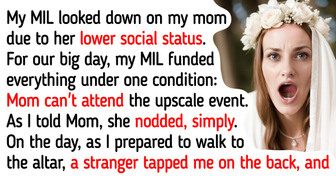
10 Grandparents Who Carry the Family Tree on Their Shoulders With Grace
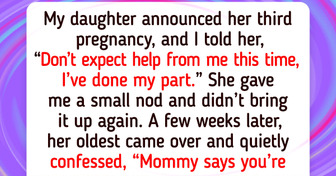
My Son Brought His Fiancée Home — What I Discovered Made Me Call the Police
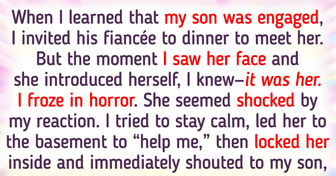
Angelina Jolie Introduces Her Grown-Up Son, Knox, on the Red Carpet — But Many Notice the Same Thing

I Left My Wife on Our Wedding Night Because of Her Sick Surprise

My Mother-in-Law Devoured Our $2000 Wedding Cake, So I Iced Her With Sweet Revenge
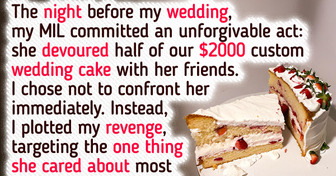
I’m Refusing to Allow My Daughter’s Biological Mom to Meet Her
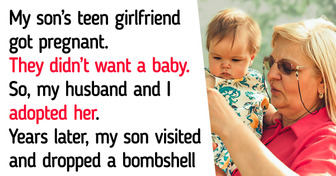
My Daughter Is Calling Her Stepmom "Mom" Instead of Me
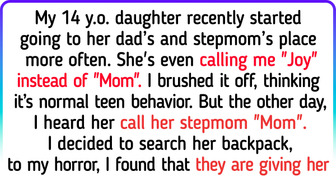
I Was Humiliated by My MIL, but Karma Had Other Plans
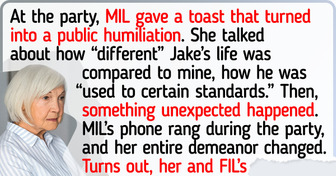
13 Stories of Quiet Kindness That Show Superhuman Strength in Ordinary People

I Refused to Knit My Coworker a Free Blanket, and Now HR Is Involved
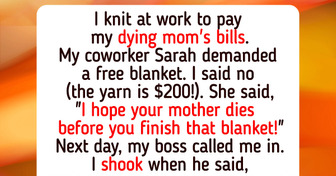
10 Stories That Prove Quiet and Lonely People Often Carry the Kindest Hearts
